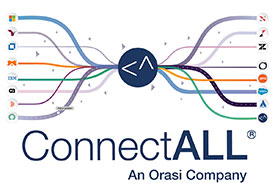 By Lance Knight
By Lance Knight
SVP and General Manager
ConnectALL, an Orasi Company
 In the software world, user expectations are off the charts. Driven at least partly by cutthroat competition among mobile devices and apps, users expect application updates for all systems to occur in near real-time, and they won’t tolerate outages or defects. Furthermore, enterprise software increasingly must run on mobile devices, from smartphones to tablets.
In the software world, user expectations are off the charts. Driven at least partly by cutthroat competition among mobile devices and apps, users expect application updates for all systems to occur in near real-time, and they won’t tolerate outages or defects. Furthermore, enterprise software increasingly must run on mobile devices, from smartphones to tablets.
In December 2016, Gartner Research predicted that by 2022, 70% of all software interactions in the enterprise would be on mobile devices. It’s no wonder, then, that demand for rapid-fire release cycles of defect-free enterprise software has become relentless.
Legacy Problems; Modern Solutions
Fast, defect-free releases sound great in theory, but they have traditionally been far from simple to achieve in practice. To address the “need for speed,” organizations increasingly adopt DevOps principles and the continuous delivery methods they support. Yet, the very nature of DevOps runs counter to historic quality approaches, which are characterized by lengthy, thorough testing and defect remediation — with cautious release to production only when code is ready.
This conundrum has resulted in a blended approach—DevOps for application development (AppDev); legacy systems for testing and defect remediation, with little connection or communication between the two. As release cycles accelerate, this approach can cause crippling inefficiencies that limit an organization’s ability to achieve its software goals. Despite this challenge, the divergent realities of Dev and Test teams remain, because Dev and Test teams are most effective using systems purpose-built for their specific tasks.
The Path to Value
As researchers, software developers, and industry experts labored to resolve this challenge, they looked to manufacturing for inspiration. Software engineering and manufacturing both include highly repetitive processes, require efficiency to be cost effective, and must deliver products within an acceptable timeframe and defect level to ensure customer satisfaction. They also may encompass disparate processes that must be unified through some mechanism in order to achieve the full value chain.
“Software engineering and manufacturing both include highly repetitive processes, require efficiency to be cost effective, and must deliver products within an acceptable timeframe and defect level to ensure customer satisfaction. They also may encompass disparate processes that must be unified through some mechanism in order to achieve the full value chain.”
This collective exploration led to the rise of a process-centered approach —“value stream management” (VSM) — where organizations focus on removing both unnecessary and detrimental activities from the process stream to make development cycles as “clean and lean” as possible. At Orasi, we were intrigued by this concept, and we could see its appeal.
However, our experts noted that while process improvement enables firms to accelerate release cycles without diminishing quality, is not the only driver of value in software delivery. It doesn’t resolve the core integration challenge we discussed earlier between Dev and Test teams, nor does it address external threats to software quality, such as the attacks encouraged by insecure code.
We recently addressed both of these “value challenges,” and others, in a white paper, “Propelling the Value Stream in a Software-Driven World,” that we will be debuting soon. In the meantime, we’ll let you in on a little secret. The integration that we discussed above is within the reach of all software organizations today, even if they are running legacy systems, DevOps tools, and even customer-service platforms, side by side. To explore our recommendation for a single tool that helps companies easily integrate tools, people and processes, providing unified reporting and much more, click here. We are confident you will be amazed at what you find.
About the Author:
Lance Knight
SVP and GM
lance.knight@orasi.com
ConnectALL, an Orasi Company
Lance Knight is the SVP and GM of ConnectALL, an Orasi company. His responsibilities include sales, sales operations, customer success, and technical support. Previously, he held SVP/VP roles at LeadingAgile, Tasktop Technologies, and Accept Software, specializing in field operations, sales development, and customer success. Lance started his IT career with a large aerospace manufacturer where he learned about Lean Manufacturing and Systems Thinking. He’s a published author of books and white papers on leadership, software development, and software sales.